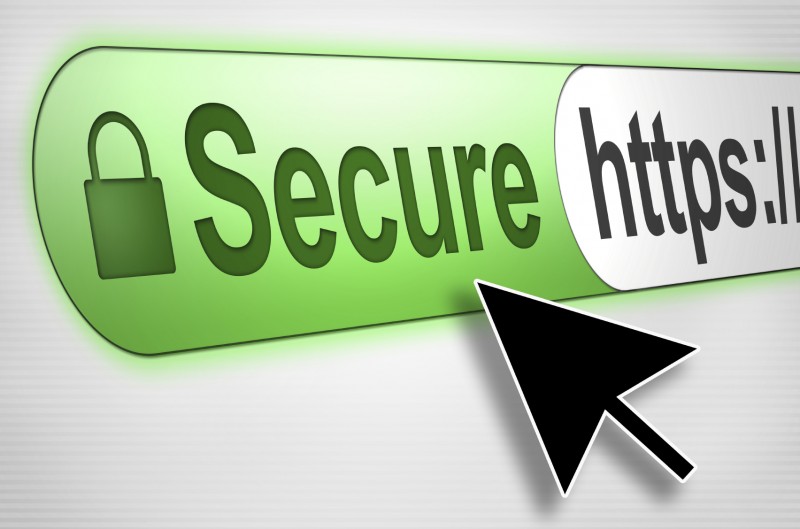In the digital age, online security is paramount, especially for eCommerce websites that handle sensitive customer information. One of the most effective ways to ensure secure communication between a user’s browser and your website is by implementing an SSL (Secure Socket Layer) certificate. This blog will explore the importance of SSL certificates in securing eCommerce websites and how they contribute to building trust with your customers.

Table of Contents
Toggle1. Understanding SSL Certificates
An SSL certificate is a digital certificate that authenticates the identity of a website and encrypts the data transmitted between the web server and the user’s browser. When a website is secured with an SSL certificate, the URL begins with “https://” instead of “http://,” indicating that the site is using a secure protocol.
2. Data Encryption
One of the primary functions of an SSL certificate is to encrypt sensitive data transmitted between the customer and the website. This includes personal information, payment details, and login credentials. Encryption ensures that even if data is intercepted by malicious actors, it remains unreadable and secure. This protection is crucial for eCommerce websites, where financial transactions are a regular occurrence.
3. Building Customer Trust
In an era of increasing cyber threats, customers are more cautious about sharing their personal and financial information online. Displaying an SSL certificate on your eCommerce website signals to visitors that their data is secure and that you take their privacy seriously. This trust is vital for converting visitors into customers. Studies have shown that consumers are more likely to make purchases on websites that are secured with SSL certificates.
4. Improving Search Engine Rankings
Search engines, particularly Google, prioritize websites that offer secure connections. Since 2014, Google has been using HTTPS as a ranking signal. This means that eCommerce websites with SSL certificates can benefit from improved search engine rankings, making them more visible to potential customers. A higher search ranking can lead to increased traffic and, ultimately, more sales.
5. Compliance with Regulations
Many regions have specific regulations regarding online security and data protection. For instance, the General Data Protection Regulation (GDPR) in the European Union emphasizes the need for secure data transmission. Having an SSL certificate helps eCommerce businesses comply with these regulations, avoiding potential legal repercussions and fines.
6. Preventing Phishing Attacks
Phishing attacks involve tricking users into providing their personal information by pretending to be a legitimate website. Websites without SSL certificates are often more susceptible to such attacks. By securing your eCommerce site with an SSL certificate, you make it more difficult for cybercriminals to impersonate your website, thereby protecting your customers from phishing attempts.
7. Enhancing Customer Experience
When customers see the padlock icon in their browser’s address bar, they feel more secure while browsing your website. This peace of mind can lead to increased time spent on your site and higher conversion rates. Additionally, a secure website can help reduce cart abandonment rates, as customers are more likely to complete their purchases when they trust that their information is safe.
8. Types of SSL Certificates
There are different types of SSL certificates to choose from, depending on your business needs:
- Domain Validated (DV) Certificates: These are the most basic SSL certificates and are suitable for small eCommerce sites. They verify that the applicant has control over the domain.
- Organization Validated (OV) Certificates: These certificates provide a higher level of validation by verifying the organization’s identity, making them ideal for medium to large eCommerce businesses.
- Extended Validation (EV) Certificates: EV certificates offer the highest level of trust and validation. They display the organization’s name in the browser’s address bar, making it clear to users that the site is legitimate.
9. How to Implement SSL Certificates
Implementing an SSL certificate on your eCommerce website involves a few key steps:
- Choose a Certificate Authority (CA): Select a reputable CA from which to purchase your SSL certificate.
- Generate a Certificate Signing Request (CSR): This request is generated from your web server and is required to obtain your SSL certificate.
- Install the SSL Certificate: Once your SSL certificate is issued, install it on your web server following the CA’s instructions.
- Update Your Website Links: Ensure that all internal links point to the HTTPS version of your website to avoid mixed content issues.
- Redirect HTTP to HTTPS: Set up 301 redirects to ensure that visitors accessing the HTTP version of your site are automatically directed to the secure HTTPS version.
Conclusion
In today’s digital landscape, securing your eCommerce website with an SSL certificate is no longer optional; it’s a necessity. SSL certificates provide essential data encryption, build customer trust, improve search engine rankings, and ensure compliance with regulations. By investing in SSL certificates, you not only protect your business and your customers but also create a secure online environment that fosters sales and loyalty. Start implementing SSL today to secure your eCommerce website and enhance your customers’ shopping experience!


No responses yet